Greensboro baker fuses Egyptian, Southern flavors
By Jennifer Kornegay
A block behind the heart of Greensboro, Alabama’s tiny downtown, a small cottage painted pine-tree green is flying a flag that whips in the wind before unfurling to proclaim: “Love each other.” The house was once a home, but today, a small hand-lettered sign near the sidewalk says it’s Abadir’s Cottage, homebase for the food business Abadir’s that Sarah Cole has been building since 2020.
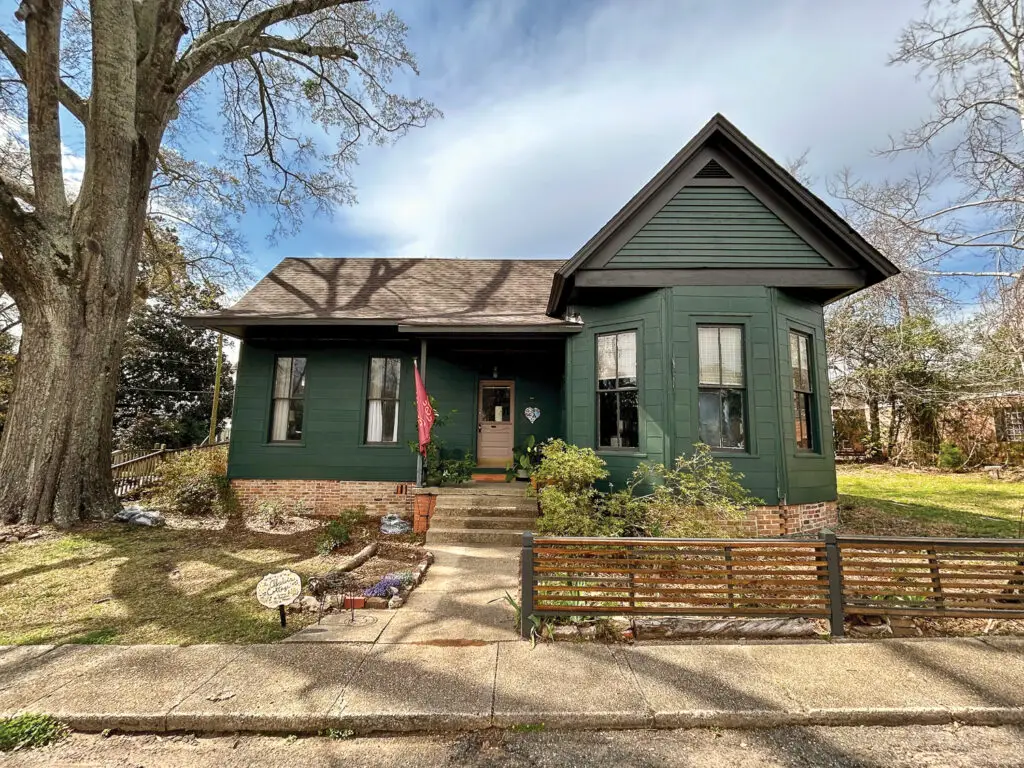
In its kitchen, Cole deftly draws from her family’s Egyptian heritage, stirs in some of her upbringing in nearby Demopolis and blends it with skills gained during some time in Pennsylvania resulting in a Middle East-meets-Alabama cuisine that’s all her own. She dreams up and whips up sweet and savory pastries, cookies, breads, sandwiches, stews, salads and beautiful fresh-flower-festooned cakes for catering gigs, website orders and for sale at farmers markets and pop-up events, and soon, from the Greensboro cottage space.
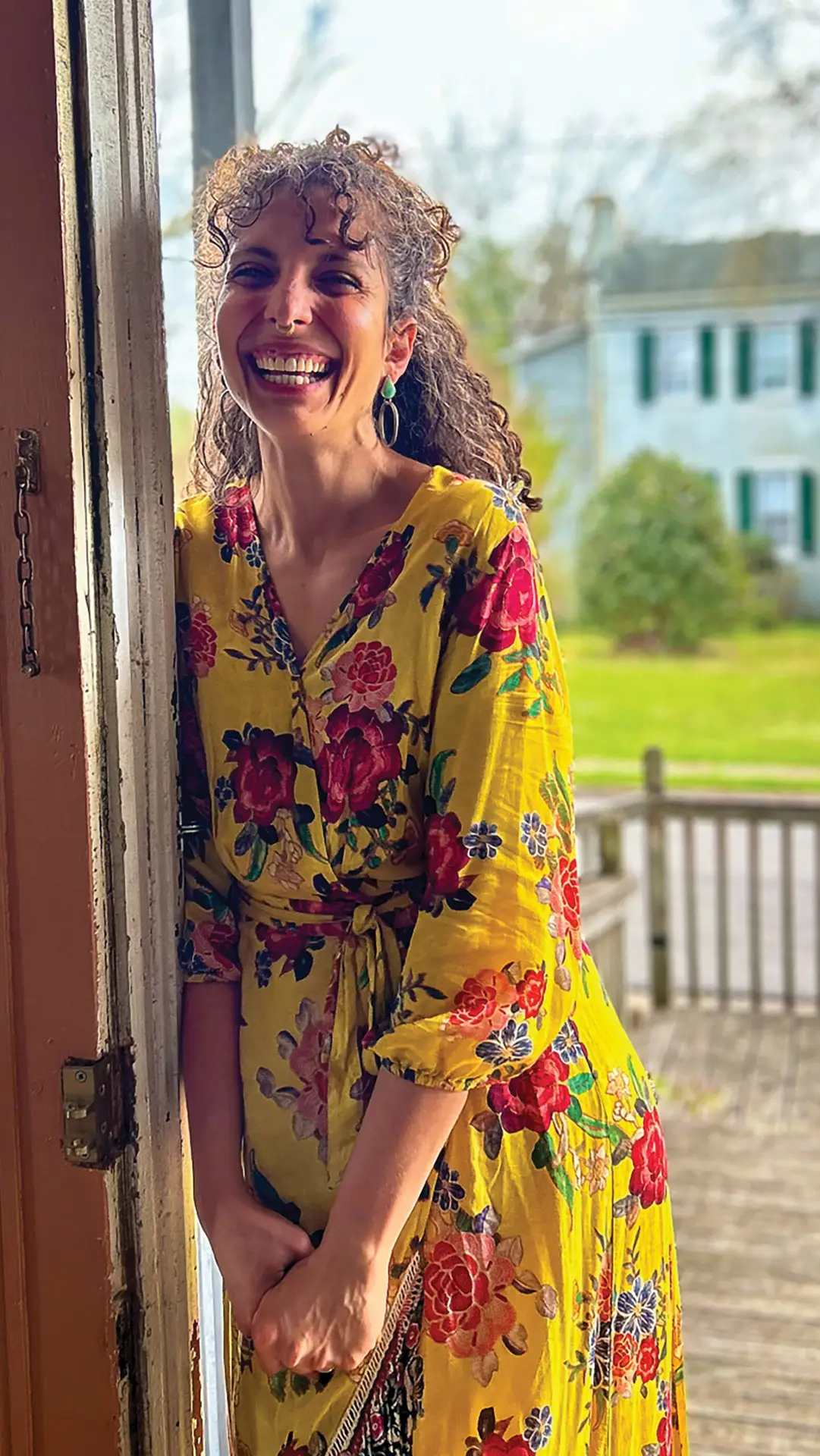
Photo by Jennifer Kornegay
Her recipes are often her own twists on classics, and not all of her Egyptian treats are strictly traditional. Ingredient lists include usual Southern suspects like tomatoes, okra and molasses but Middle Eastern flavors too, like honey, dates, anise, coriander and rosewater. Her Alabama upbringing and devotion to using seasonal, local ingredients, particularly produce (often from her own garden), are routinely in the mix, exemplified in her cornmeal poundcake with fine-ground coriander seeds and almonds, carrot cake with dried apricots, and her pickled collards stuffed with herbed rice, a nod to Egyptian stuffed grape leaves.
Abadir’s roasted carrot dip with turmeric is earthy and smooth. Cake frostings are often laced with cardamom and other spices. A fan favorite, Cole’s toasty tahini cookies are her riff on a sugar cookie that’s lightened and then infused with Arab touches, like nutty sesame seeds and tahini. Her bright yellow sfouf, an Arab cake with coconut and turmeric, is another best-seller. Anytime her menu includes maamoul, an Egyptian take on shortbread stuffed with dates, it sells out. And many of Cole’s creations are vegan, gluten-free and refined sugar-free.
Community at the core
But that flag out front points to the true nature of the nourishment Abadir’s aims to provide. “I love to make and share food, but I want to nurture this community too,” she says. “I think food is just a great way to do that.” Abadir’s is anchored by a mission to improve access to healthy food and food education, like workshops to increase nutritional knowledge and cooking classes to teach basic kitchen skills and simple recipes, while also harnessing food’s power to foster connections.
It’s why every ingredient’s nutritional value is considered before making the cut. Cole uses a sourdough base (instead of yeast) to lift every style bread she makes, even pita. She uses flours made from wholesome grains and opts for less refined sugar, relying on fruits and honey to sweeten treats. And many recipes make vegetables the star. “I’m not preachy about it, but I do hope to help people think about how what they eat affects their bodies,” she says.
It’s also why Cole is proud of Abadir’s becoming one of the first five certified B-corporation businesses in Alabama late last year. The designation means that a business is committed to positive social and environmental impacts and meets standards of performance, accountability and transparency in its efforts. “You can operate a for-profit business and do charitable things with it; B-corps are focused on giving back, and that’s what Abadir’s is,” she says.
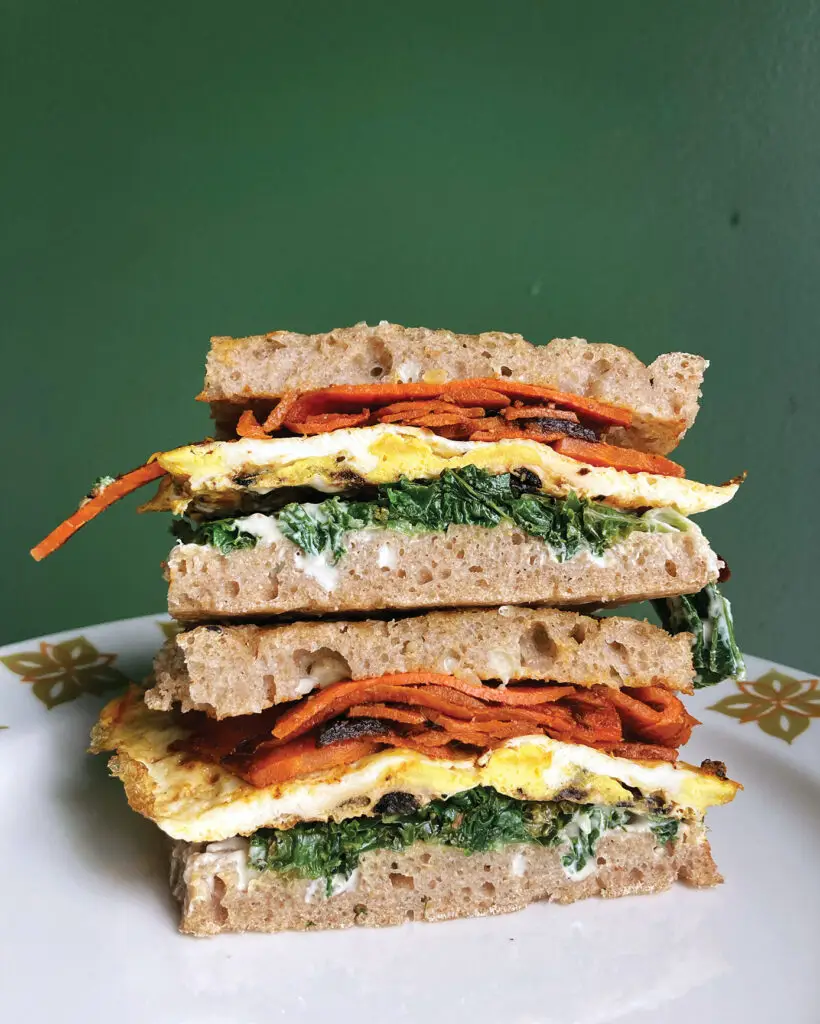
The B-corp process took a full year and was challenging, but Cole says it was worth it. “For me, having the certification says, ‘I am doing what I say I am.’ This business exists to better my community. And the first four other B-corps are women-owned, too. I think together, we’re making a strong, collective statement about using businesses for good.”
Cole’s vision for improving people’s health and expanding their palates (she gets a thrill watching customers try and enjoy something new) will soon be executed in the new cottage space. “It’s a multi-use gathering and food space, a home for all Abadir’s is and wants to be,” she says.
Before baking
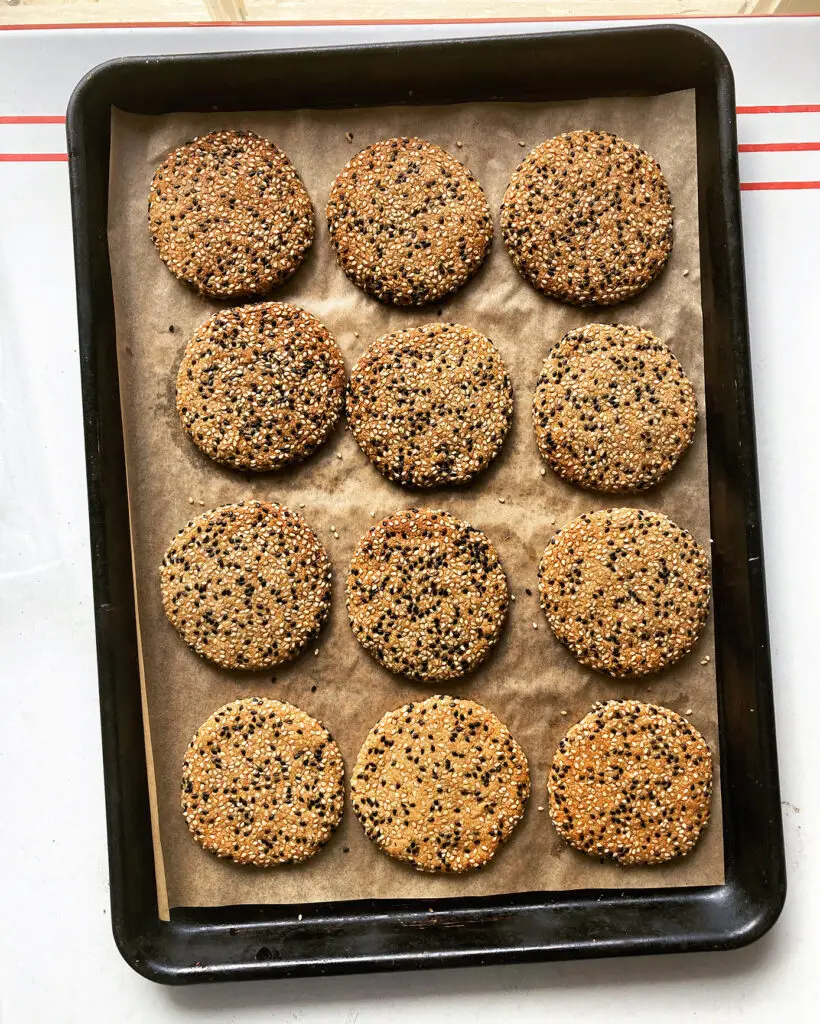
The Abadir’s story is still being written, but it began decades ago when, in 1983, Cole’s 28-year-old mother fled religious persecution in Egypt. Hosni Mubarak was in power, and her Christian mother (and others who shared her faith) were in danger under his rule. She and Cole’s grandparents settled in Demopolis. Cole’s mom met her dad in the local grocery store, they married, and raised Cole and her older sister. In 2017, Cole moved to Pittsburgh, Pennsylvania, where she turned a struggling farm market around by adding educational programming and community events. At the beginning of the pandemic, she went to work for a Pittsburgh bakery where her longtime affection for cooking was re-ignited.
During both jobs, thoughts of Abadir’s were simmering in the background. “I’d been thinking about a way to feed others for a while, and I soon figured out that it felt right to come back to Alabama to do what I was envisioning,” Cole says. And once she knew what she wanted to do, there was only one name to give it. “Abadir is my mother’s maiden name, but she and her family changed it to Anton when they moved to the United States so they didn’t stand out as ‘foreign,’” Cole says. “But I’ve always thought it was beautiful. And I love that it is unusual.”
Good taste, good deeds
To implement her many ideas, Cole needed the right infrastructure. Abadir’s Cottage fit the bill; she’s been in the space since last spring and cooking up big plans ever since. “I do want a restaurant, but it’s not the time now, and that’s not what is needed here now,” she says. “A real passion is the food education component, so I now have the room to do classes and workshops, but I also want the cottage to be a place people can come and sit and just be, so I’m trying to make it really homey and comforting.”
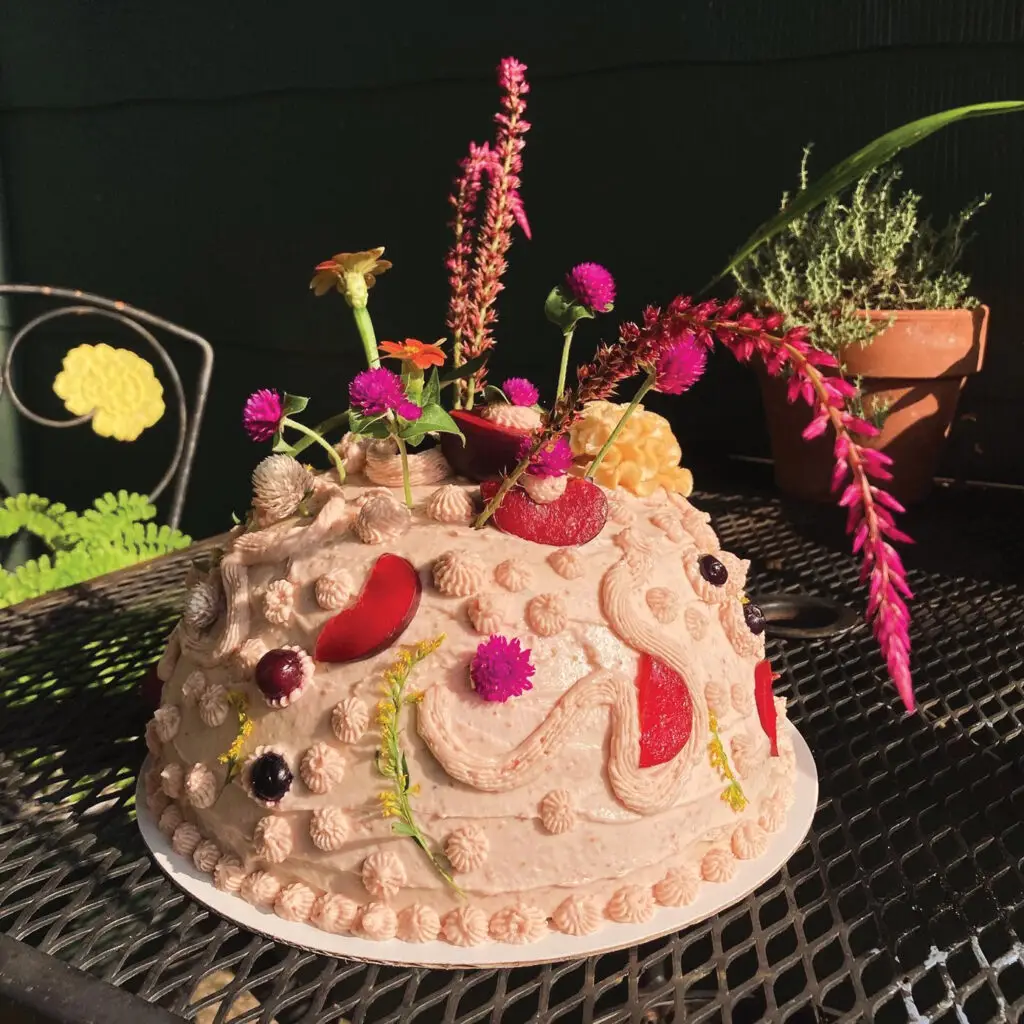
It may not be a traditional restaurant, but the cottage will be filled with food. One of the front areas is outfitted with a glass-front fridge to hold frozen pita rounds and talami (a Middle Eastern flatbread), roasted-veggie-stuffed pita pockets, soups and other grab-and-go items like meals people can take home and heat up.
Abadir’s pastries and baked goods, Cole’s spice blends like aromatic za’atar and bold dukkah, and products from other local food makers line shelves, and she hinted that her pickled veggies and fruit jams will join them soon. “People can eat here at the tables if they want, and again, they can just come and sit. They don’t have to buy anything.”
The offerings will change with the seasons, and Cole says she’s getting excited about hosting special events and pop-up ticketed lunches and dinners here and there, some with visiting chefs. “I want offer some free community lunches too, and I’m working up a price-fixed lunch option, like something filling and wholesome that’s always X dollars.” Cole notes that being flexible is key to Abadir’s strategy. “I want this to ebb and flow and evolve to always be a community-focused food business and stay true to the way I want to feed people,” she says.
Cole has also been instrumental in getting Greensboro’s new weekly farmer’s market going, which launches in early June and is not far from Abadir’s Cottage. “I’ll have the kitchen open, and we’ll be doing some classes to help people get the most out of the produce they can get at the market.”
Highlighting home
Last fall, Cole visited Egypt for the first time. She made the journey with her mother, who had not set foot in her homeland since leaving more than 40 years earlier. The experience only strengthened the family inspiration in Abadir’s foundation. “Seeing my mom reconnect to the place she grew up, that was huge, because so much of what I am doing in the kitchen is to hang onto these memories of her and my grandparents from my childhood,” she says. “All of that goes into my food. I’m aways thinking about them when I’m creating dishes.”
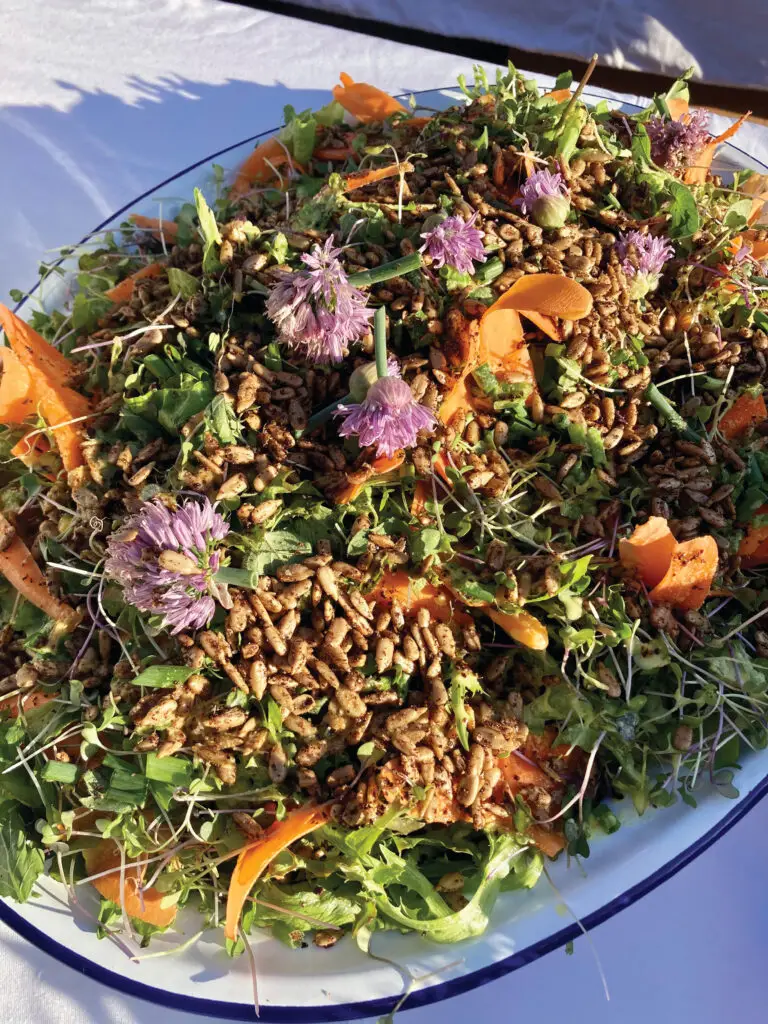
While it opened her eyes to new things — like the smoky dishes she ate in the Siwa Oasis that had been cooked buried in the surrounding desert’s sand — the trip also underscored some of the principles she holds to in Abadir’s. “Every region had its own different take on the same dish, and that’s true here, too. My mom has her own regional take on Egyptian cuisine because she cooked it here, so it was the Alabama version of the dishes,” she says. “It’s the same with me. I only have access to certain things, and then I blend in my memories, which are of here, so that all shapes my dishes. But that’s the beauty of food; it is personal. We are always making it our own.”
The fact that her food is as much Alabama as anything else makes Cole smile and fuels her determination to continue changing the narrative in her town and her state. “Alabama gets some negative headlines, and when it comes to the Black Belt, I think some people look at us and feel bad for this place, but that’s not how it is,” she says. “This is the most historically rich region in the entire nation. There are good roots and good stories and good people doing great things here. I’m just glad I can be a part of it.”




